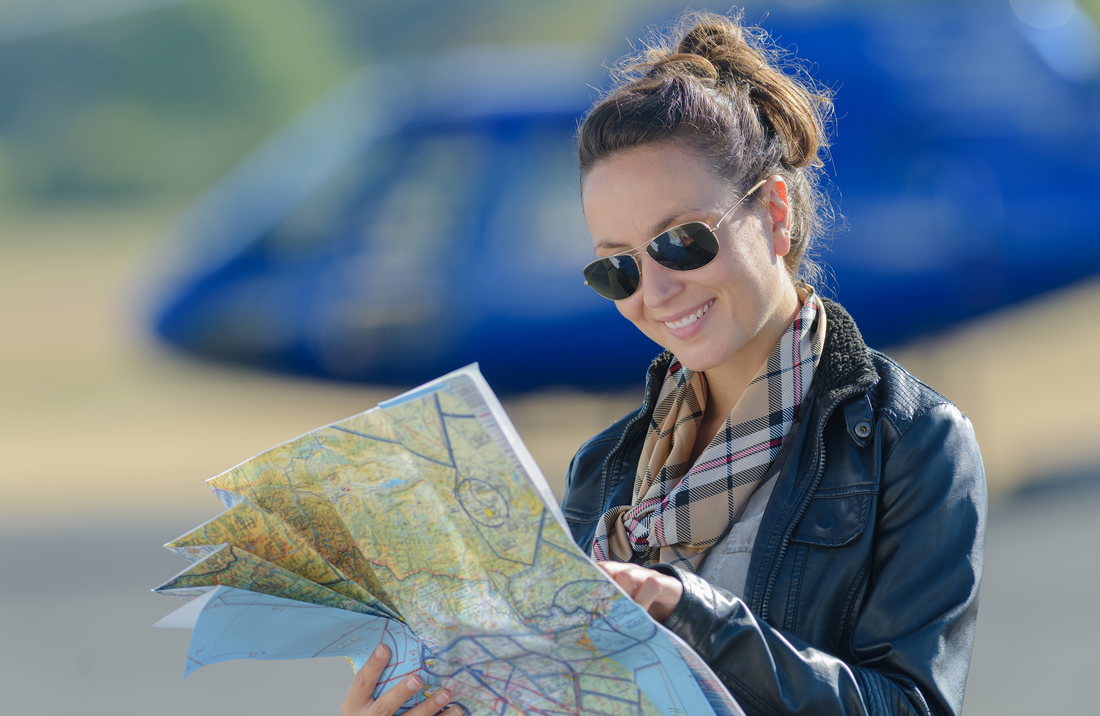Welcome aboard, future aviators! Whether you're taking your first steps onto the tarmac or you've been dreaming of this moment for years, starting flight training is an exhilarating journey. As women in aviation, we are part of a growing community that celebrates our achievements and supports one another through every challenge. Let’s explore some key strategies to help you navigate both ground school and your initial hours in the cockpit. 🛩️💪
Tackling Ground School with Confidence
🚀 Embrace the Learning Curve
Ground school can feel like drinking from a firehose—there’s so much information coming at you all at once! But remember, every pilot has been where you are now. Take it one step at a time and don't be afraid to ask questions. No question is too small when it comes to understanding the principles that will keep you safe in the sky. 🌤️
🗓️ Create a Study Schedule
Consistency is key 🔑. Set aside dedicated time each day for studying. Break down topics into manageable chunks and focus on one area at a time. Use a planner or digital calendar to track your progress and stay on top of deadlines.
📚 Utilize Multiple Resources
Textbooks are essential reading for pilots in training, but don’t rely solely on them. Supplement your learning with an online course, YouTube instructional videos, and apps designed for pilots. Interactive tools can make learning more engaging and reinforce complex concepts.
🤝 Join a Study Group
There’s strength in numbers! Connect with fellow students and form a study group, either in person or online. Set a specific date/time where you’ll co-study and help each other learn. Plus, you’ll build a network of friends who share your passion for aviation.
✍️ Practice Test-Taking Strategies
The FAA written test can be daunting, but practice makes perfect. Take as many practice tests as you can find. Familiarize yourself with the format and types of questions you’ll encounter. Simulate test conditions and identify areas where you need improvement, then ask for help to learn those skills (VOR tracking anyone?) that are flummoxing you.

Taking Flight: Your First Hours in the Cockpit
👩🏫 Get Comfortable with Your Instructor
Your flight instructor(s) will be your guide through these early stages, so it’s crucial to establish a good rapport. Communicate openly about your goals and concerns. Supportive instructor-student relationships can make all the difference in your training experience. And if you aren’t meshing well with a particular instructor, talk to your chief pilot about it – remember YOU are the customer and paying to learn.
✔️ Master the Pre-Flight Checklist
Before you even start the engine, you’ll need to complete a thorough pre-flight inspection of your aircraft. This routine ensures that everything is in working order and sets the tone for a safe flight. Make this checklist use second nature—it’s an essential habit for any pilot, whether you have one hour or 10,000 hours.
✈️ Focus on Fundamentals
During your first few hours in the air, you’ll learn basic maneuvers like climbs, descents, turns, and straight-and-level flight. These fundamentals are the building blocks for advanced skills. Pay close attention to your instructor’s guidance and practice diligently. Everyone hits learning plateaus, so ask to practice something different if you feel stuck on a certain maneuver, then come back to it fresh next flight.
⏱️ Stay Ahead of the Aircraft
A common piece of advice is to stay ahead of the aircraft. What this means is anticipating what’s coming next rather than reacting to what just happened. For example, if you’re approaching an airport for landing, think about radio frequencies and configuring your aircraft well before you’re on final approach.
🌟 Embrace Mistakes as Learning Opportunities
Every pilot makes mistakes—it’s part of the learning process! When things don’t go as planned, take a deep breath and analyze what happened without being too hard on yourself. Each mistake is an opportunity to improve.

Balancing Flight Training with Daily Life
🧘 Prioritize Self-Care
Flight training is demanding both mentally and physically, so it’s important to take care of yourself. Get plenty of rest, eat nutritious meals, stay hydrated, and incorporate exercise into your routine. A healthy body supports a sharp mind! 💪🍎
🌿 Manage Stress Effectively
Stress is inevitable during flight training, but managing it effectively is crucial for success. Techniques such as mindfulness meditation or yoga can help keep stress levels in check. Also, ensure you have downtime to relax and recharge.
🎉 Celebrate Milestones
From passing your first solo flight to acing exams, celebrate each achievement along the way! 🎉 Recognizing these milestones keeps motivation high and reminds you how far you’ve come. We offer FREE milestone stickers in exchange for sharing your achievement on our socials - check out our offer HERE.

Building Your Aviation Community
🌍 Network Actively
Join local aviation clubs or organizations like the Ninety-Nines, Women in Aviation International (WAI) or your local Experimental Aircraft Association (EAA) chapter. Attend events or flyouts where you can connect with other women who share your passion for flying. 🛫💬
🧑✈️ Seek Mentorship
Mentors provide invaluable support throughout your aviation journey—they’ve been there before! Don’t hesitate to reach out within the community; many experienced pilots are eager to offer guidance based on their experiences.
Conclusion 🚁
Embarking on this adventure requires dedication but promises unparalleled rewards—the thrill of soaring above the clouds awaits us all! 🌤️ Remember: every great aviator started where you are now—with dreams fueled by determination and courage.
So let’s spread those wings wide open together and look forward to clear skies ahead. Sign up to receive our emails to read more posts as we publish and get access to secret sales below. As always, be safe and wishing you tailwinds! 💙✈️

